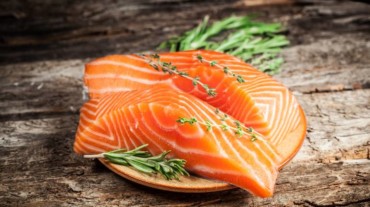
The temperature significantly impacts the habitats in which animals may thrive and reproduce. According to research, hot weather causes a nine-month drop in birth rates. The hot weather impacting reproductive health around the time of conception is to blame for this drop-in birth. So does your fertility in summer go down? Let’s find out.
A study was run on ostriches, over 20 years by fluctuating the temperature, to understand the variety of fertility features. Both increases and reductions in ambient temperature dramatically lowered the number of eggs females lay and the number of sperm men ejaculated. Temperature effects were not instantaneous, but they occurred within a key thermal window 2–4 days before laying and ejaculation. Egg-laying rates peaked at 20 °C within this critical thermal window, then dropped by 15 percent and 18 percent as temperatures climbed and declined by five °C, respectively.
The number of sperm men ejaculated decreased similarly, but the temperature optimum appeared to be somewhat greater than for egg-laying, peaking at 26 degree Celsius. Temperature fluctuations had a far less impact on gamete viability than they did on the number of gametes. When temperatures drop from 20 to 15 degree Celsius, the mass of eggs females produce decreases by just 0.7 percent and remains unaffected by temperature rises.
However, in simple words, summer doe affect female fertility slightly. At the same time, in males, the quality of sperm massively gets disturbed. Summer does reduce the sex drive in women, which can also be a reason behind the drop in birth rate.
Getting more sun might help you become more fertile. The hormone melatonin and a critical vitamin that we will reveal about, are affected by sunlight and play a role in regulating women’s reproductive cycles. That’s why fertility specialists advise you to make an effort to spend time outside since it can help you gain an advantage on your road to parenting.
Vitamin D is necessary for improved fertility. A healthy reproductive system necessitates the intake of vitamin D. Vitamin D insufficiency can cause hormone imbalances, ovulation problems, and sperm production problems. Although vitamin D may be found in food, humans acquire the majority of our vitamin D through sunshine. Getting adequate sunlight for vitamin D synthesis might be challenging for persons who don’t spend much time outside.
When women have enough vitamin D, they can produce more progesterone and estrogen. These aid in the regulation of your menstrual cycle as well as the improvement of ovulation.
Folate, a B vitamin found in leafy greens like spinach, arugula, and romaine lettuce, is claimed to help ovulation, a vital stage of the fertilization process. These greens can also aid in the creation of better sperm in your partner.

Researchers have proven that drinking one to two glasses of whole milk products per day will help to prevent ovulatory infertility. This dish may be a glass of chilled milk or, better yet, a large scoop of your favorite ice cream.

Fresh wild salmon is a wonderful item to eat this summer to assist your body in preparing for the arrival of a baby. This type of fish contains omega-3 fatty acids, which can assist regulate the production of hormones and increase blood circulation to your reproductive organs.
Select Topics of your interest and let us customize your feed.
PERSONALISE NOWIn conclusion, the sex drive does reduce in some during summer, leading to slightly fewer conceptions. The sperm count is affected in extreme heat. It is not clear whether heat reduces egg quality.